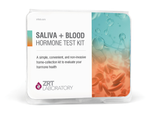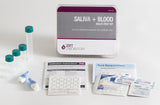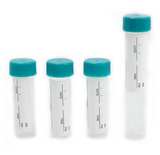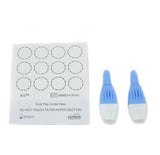Male Hormone Test Profile II is a comprehensive hormone testing panel specifically designed for men. It aims to evaluate the levels of essential hormones that play crucial roles in male health and well-being. This comprehensive test profile provides valuable insights into the hormonal balance and functioning of the endocrine system in men. The Male Hormone Test Profile II offers a comprehensive assessment of reproductive hormones, adrenal function, thyroid health, and overall endocrine system status in men. This comprehensive profile serves as a valuable tool for healthcare professionals in diagnosing hormone imbalances, guiding treatment decisions, and promoting optimal male health. Male Hormone Test Profile II (Comprehensive) is for testing 15 essential hormones in men as follows:
- Cortisol Morning
- Cortisol Noon
- Cortisol Evening
- Cortisol Night in saliva in saliva
- Estradiol (E1)
- Estradiol (E2)
- Progesterone (Pg)
- Testosterone (T)
- Dehydroepiandrosterone DHEA-S (DS)
- Prostate-Specific Antigen (PSA)
- Sex Hormone Binding Globulin (SHBG)
- Free Triiodothyronine (fT3)
- Free Thyroxine (fT4)
- Thyroid Stimulating Hormone (TSH)
- Thyroid Peroxidase Antibody (TPOab) in blood spot in Men
Key Features
- The Male Hormone Test Profile II is commonly used to evaluate various conditions and concerns related to male health, including:
- Erectile dysfunction and decreased libido: Low testosterone levels can contribute to sexual dysfunction and decreased sex drive. This profile can help identify hormonal imbalances that may be affecting sexual function.
- Infertility: By assessing hormone levels, particularly, the test can provide insights into potential causes of male infertility and aid in the development of appropriate treatment plans. Please see our Fertility Profile
- Hormonal imbalances: The profile helps detect hormonal imbalances that may result in symptoms like fatigue, mood changes, muscle weakness, or abnormal hair growth.
- Hypogonadism: This condition refers to decreased testosterone production by the testes, leading to various symptoms such as fatigue, reduced muscle mass, decreased bone density, and depression. The test can aid in diagnosing and monitoring this condition.
- Monitoring hormone replacement therapy (HRT): For individuals undergoing testosterone replacement therapy, regular monitoring of hormone levels is essential to ensure optimal dosing and treatment outcomes.
- Test Result: You will receive your test result 3-5 working days after the laboratory receives your sample. You will see your hormone levels in graphics and numbers on your test result. You will also see laboratory comments by Hormone Specialist PhD Dr in the comments: you will find Dr analysis of your hormone levels and what to do next.
- Click the link to see Male Hormone Test Profile II Sample Report
- Collect samples from the comfort of your home and post them to our lab.
- The test is suitable for both adults and children
- The test must be used within 12 months after the purchase date.
- The test kit includes a laboratory fee: no additional laboratory cost and tax.
- Customers are responsible for shipping their samples to the laboratory.
Overall, the Male Hormone Test Profile II provides valuable insights into male hormonal health and aids in the diagnosis, treatment, and monitoring of conditions affecting male reproductive function, sexual health, and overall well-being. It enables healthcare providers to tailor appropriate interventions and therapies to restore hormonal balance and optimize male health.
Having a low or high level of a particular hormone in the body can cause hormonal imbalance. General male hormones, hormonal imbalance and their symptoms are explained below.
Testosterone
Testosterone is the primary indicator of male hypogonadism and andropause. Many things can contribute to low testosterone levels, including high cortisol levels and high estrogen levels, as described above. Testosterone production in the testes is controlled by the hypothalamic-pituitary-testicular axis, and so dysfunctions of the hypothalamus or pituitary can affect levels, as well as the negative feedback effect of estradiol on LH levels to suppress testosterone production.
Low Testosterone Symptoms:
- Decreased libido (sex drive)
- Erectile dysfunction or difficulty achieving and maintaining erections
- Fatigue and decreased energy levels
- Reduced muscle mass and strength
- Increased body fat, particularly in the abdominal area
- Decreased bone density and increased risk of osteoporosis
- Mood changes, such as irritability, depression, or lack of motivation
- Decreased cognitive function, including memory problems or difficulty concentrating
- Changes in sleep patterns, including insomnia or increased sleepiness
- Decreased facial and body hair growth
- Gynecomastia, the development of breast tissue in men
- Hot flashes or night sweats
High Testosterone Symptoms:
- Increased sex drive (libido)
- Aggressive or irritable behavior
- Acne or oily skin
- Enlarged prostate gland
- Excessive muscle mass and strength
- Mood swings or increased aggressiveness
- Male pattern baldness or excessive body and facial hair growth
- Deepening of the voice
- Sleep disturbances or insomnia
- Increased sweating
- Changes in cholesterol levels
- Decreased testicular size
The Problem – Andropause and Low Testosterone
As men age, their levels of testosterone begin to decline, usually beginning around the mid-40s. This heralds what is commonly known as andropause, the male counterpart to menopause. While this is a natural part of ageing, the decline in testosterone production by the testes can be more precipitous in some men than others. Excessive weight gain, stress, lack of exercise, and many medications further contribute to a man’s ability to manufacture testosterone, resulting in even lower testosterone levels and leading to symptoms of andropause. These symptoms may include low libido, irritability, depression, loss of muscle mass and strength, weight gain, metabolic syndrome, erectile dysfunction, sleep disturbances, osteoporosis, and adverse changes in the blood lipid profile. Symptoms of androgen deficiency and low testosterone levels are used to establish a diagnosis of hypogonadism. This low testosterone condition was found to increase significantly with age in the Massachusetts Male Aging Study. In the Hypogonadism in Males (HIM) study, hypogonadism was diagnosed in 38.7% of men over 45 years old who presented to primary care offices. However, while this is certainly an option, the solution to the problem may not be a simple case of restoring testosterone levels. For example, some practitioners find that testosterone therapy may be of little benefit unless problems affecting cortisol production are addressed first. The body’s response to stress is mediated by increased cortisol production, and this prepares the body for “fight or flight” by shutting down other processes, including testosterone production. Correcting disorders such as adrenal fatigue or chronic stress may, therefore, lead to improved testosterone levels and resolve symptoms, without requiring testosterone therapy. Increasing cortisol levels, along with several other endocrine changes, have been reported in men, highlighting the need to obtain a complete hormone profile before initiating any hormone replacement.
Estradiol (Estrogen)
Estradiol is an important hormone to test because excessive levels, in relation to testosterone, can inhibit testosterone receptors in target tissues, leading to feminizing effects in men, including breast enlargement. In young and healthy men, testosterone levels are typically high, while estradiol levels remain low. However, as men age, the balance shifts, resulting in a higher estradiol-to-testosterone ratio. Even if testosterone levels are within the normal range, symptoms may indicate a functional testosterone deficiency due to elevated estradiol levels.
There are several mechanisms that can contribute to changes in the relative levels of estradiol and testosterone. Weight gain, regardless of its association with low testosterone, can increase the production of aromatase in fat cells. Aromatase converts testosterone into estradiol, further exacerbating the estradiol dominance. Moreover, elevated estradiol levels stimulate the liver to produce more sex hormone-binding globulin (SHBG), which has a greater affinity for testosterone than estradiol. This leads to a reduction in the amount of free testosterone circulating in the body. Additionally, estradiol exerts negative feedback on the pituitary gland, reducing luteinizing hormone (LH) production, which in turn decreases testicular testosterone production.
To manage high estradiol levels, weight reduction is beneficial as it reduces the amount of adipose tissue producing aromatase. There are also nutritional and pharmaceutical approaches available for inhibiting aromatase activity.
In summary, monitoring estradiol levels alongside testosterone is crucial as an imbalance can lead to feminizing effects in men. Understanding the mechanisms behind changes in estradiol-to-testosterone ratio and employing strategies such as weight management and aromatase inhibition can help maintain hormonal balance and overall health.
Low Estradiol Symptoms in Males:
- Decreased libido (sex drive)
- Erectile dysfunction or difficulty achieving and maintaining erections
- Fatigue and decreased energy levels
- Decreased bone density and increased risk of osteoporosis
- Mood changes, such as irritability, depression, or anxiety
- Decreased cognitive function, including memory problems or difficulty concentrating
- Dry skin and hair
- Joint and muscle pain
- Increased risk of cardiovascular disease
- Hot flashes or night sweats
- Decreased insulin sensitivity
High Estradiol Symptoms in Males:
- Gynecomastia, the development of breast tissue in men
- Water retention and bloating
- Increased body fat, particularly in the chest and abdominal area
- Erectile dysfunction or decreased libido
- Mood swings, irritability, or emotional instability
- Fatigue and decreased energy levels
- Breast tenderness or pain
- Decreased muscle mass and strength
- Infertility or decreased sperm count
- Increased risk of cardiovascular disease
- Sleep disturbances or insomnia
Cortisol
Cortisol is an indicator of adrenal function and exposure to stressors. Under normal circumstances, adrenal cortisol production shows a diurnal variation and is highest early in the morning, soon after waking, falling to lower levels in the evening. Normal cortisol production shows a healthy ability to respond to stress. Low cortisol levels can indicate adrenal fatigue (a reduced ability to respond to stressors) and can leave the body more vulnerable to poor blood sugar regulation and immune system dysfunction. Chronically high cortisol is a consequence of high, constant exposure to stressors, and this has serious implications for long-term health, including an increased risk of cancer, osteoporosis, and possibly Alzheimer’s disease.
Low Cortisol Symptoms in Men:
- Fatigue and low energy levels
- Difficulty waking up in the morning
- Decreased ability to handle stress
- Muscle weakness and decreased muscle mass
- Weight loss or decreased appetite
- Low blood pressure
- Hypoglycemia (low blood sugar)
- Salt cravings
- Dizziness or lightheadedness
- Irritability or mood swings
- Depression or anxiety
- Decreased libido (sex drive)
- Insomnia or disrupted sleep patterns
- Poor concentration and memory problems
High Cortisol Symptoms in Men:
- Increased weight gain, especially in the abdominal area (belly fat)
- Elevated blood pressure
- Impaired immune function, leading to increased susceptibility to infections
- Muscle weakness and decreased muscle mass
- Thinning skin and easy bruising
- Slow wound healing
- Mood swings, irritability, or anxiety
- Sleep disturbances, including difficulty falling asleep or staying asleep
- Increased thirst and frequent urination
- Decreased libido (sex drive)
- Cognitive difficulties, such as poor concentration and memory problems
- Digestive problems, including bloating or stomach ulcers
- Impaired bone density and increased risk of osteoporosis
Prostate - Specific Antigen (PSA)
Prostate-Specific Antigen (PSA) is a protein produced by the prostate gland. While it is primarily used as a screening tool for prostate cancer, elevated PSA levels can indicate various prostate-related conditions. It's important to note that having an elevated PSA level does not necessarily mean a person has prostate cancer, as other factors can also contribute to increased PSA levels. It is crucial to consult with a healthcare professional for proper evaluation and diagnosis. That being said, here are some symptoms associated with Prostate-Specific Antigen (PSA) abnormalities:
-
Urinary symptoms: Changes in urinary function can occur when there are prostate issues. These may include:
Increased frequency of urination, especially during the night (nocturia), Urgency to urinate, Weak urine flow or difficulty initiating urination, Incomplete emptying of the bladder - Pain or discomfort during urination (dysuria)
- Erectile dysfunction: PSA abnormalities may sometimes be associated with difficulties in achieving or maintaining erections.
- Blood in urine or semen: Presence of blood in urine (hematuria) or semen (hematospermia) can be a symptom, although it is not exclusive to PSA abnormalities and can be caused by other conditions.
- Pelvic pain or discomfort: Some individuals with PSA abnormalities may experience pain or discomfort in the pelvic region, lower back, or perineal area.
It is important to reiterate that these symptoms can be indicative of various prostate conditions and not solely prostate cancer. Furthermore, it is also possible to have elevated PSA levels without experiencing any noticeable symptoms. Regular screening and consultation with a healthcare professional are crucial for proper evaluation, interpretation of results, and appropriate management.
Sex Hormone Binding Globulin (SHBG)
Sex Hormone Binding Globulin (SHBG) is a protein produced by the liver that binds to sex hormones such as testosterone and estrogen, regulating their availability and activity in the body. Both low and high levels of SHBG can have significant effects on hormone balance in men. Here are the symptoms associated with low and high levels of SHBG in men:
Low SHBG Symptoms:
Increased free testosterone: Low levels of SHBG result in less binding of testosterone, leading to higher levels of free testosterone. Symptoms related to increased free testosterone may include:
- Increased sex drive (libido)
- Acne or oily skin
- Increased muscle mass and strength
- Aggressive or irritable behavior
- Male pattern baldness
- Deepening of the voice
- Sleep disturbances or insomnia
High SHBG Symptoms:
Decreased free testosterone: High levels of SHBG lead to more binding of testosterone, reducing the amount of free testosterone available in the body. Symptoms related to decreased free testosterone may include:
- Decreased sex drive (libido)
- Fatigue and decreased energy levels
- Decreased muscle mass and strength
- Mood swings, irritability, or depression
- Reduced body hair growth
- Increased risk of osteoporosis
- Decreased cognitive function, such as memory problems or difficulty concentrating
It's important to note that symptoms related to SHBG levels may not be exclusive to SHBG alone and can also be influenced by other factors such as overall hormonal balance, individual variations, and other health conditions.
Dehydroepiandrosterone DHEA-S (DS)
Dehydroepiandrosterone sulfate (DHEA-S) is a hormone produced by the adrenal glands, and it serves as a precursor to other hormones, including testosterone and estrogen. Abnormal levels of DHEA-S can have various effects on men's health. Here are some symptoms associated with low and high levels of DHEA-S in men:
Low DHEA-S Symptoms in Men:
- Fatigue and low energy levels
- Decreased libido (sex drive)
- Mood swings, irritability, or depression
- Decreased muscle mass and strength
- Joint pain and stiffness
- Decreased bone density and increased risk of osteoporosis
- Poor concentration and memory problems
- Increased susceptibility to infections
- Dry skin and hair
- Weight gain, especially around the abdomen
- Insulin resistance and impaired glucose metabolism
- Decreased sense of well-being
High DHEA-S Symptoms in Men:
- Acne or oily skin
- Excessive hair growth, particularly facial or body hair (hirsutism)
- Voice deepening
- Aggression or irritability
- Mood swings or emotional instability
- Increased muscle mass and strength
- Irregular menstrual cycles in women (if caused by excess androgen production)
- Polycystic ovary syndrome (PCOS) in women (if caused by excess androgen production)
- Changes in cholesterol levels
- Insulin resistance and increased risk of diabetes
- Sleep disturbances or insomnia
- High blood pressure
Free Triiodothyronine (fT3)
Free T3, also known as triiodothyronine, is an important thyroid hormone that plays a vital role in regulating metabolism, energy production, and overall body functions. Here are some symptoms associated with low and high levels of Free T3 hormone in men:
Low Free T3 Symptoms:
- Fatigue and low energy levels
- Weight gain or difficulty losing weight
- Cold intolerance and sensitivity to cold temperatures
- Dry skin and hair
- Constipation
- Muscle weakness or aching muscles
- Depressed mood or irritability
- Poor concentration and memory problems
- Slowed heart rate
- Decreased libido (sex drive)
- Decreased sweating
High Free T3 Symptoms:
- Anxiety or nervousness
- Restlessness or irritability
- Insomnia or difficulty sleeping
- Rapid or irregular heartbeat (palpitations)
- Weight loss or difficulty gaining weight
- Increased appetite
- Tremors or trembling hands
- Excessive sweating
- Heat intolerance and sensitivity to warm temperatures
- Muscle weakness or fatigue
- Changes in bowel movements, such as diarrhea
Free Thyroxine (FT4)
Free T4 (thyroxine) is an important thyroid hormone that plays a crucial role in regulating metabolism, energy production, and overall bodily functions. Abnormal levels of free T4 can indicate thyroid dysfunction. Here are the symptoms associated with low and high levels of free T4 in men:
Low Free T4 (Hypothyroidism) Symptoms in Men:
- Fatigue and low energy levels
- Weight gain or difficulty losing weight
- Cold intolerance
- Dry skin and brittle nails
- Hair loss or thinning
- Muscle weakness or aches
- Constipation
- Depression or mood swings
- Memory problems or difficulty concentrating
- Decreased libido (sex drive)
- Slow heart rate
- Swelling of the face, hands, or feet (edema)
- Hoarse voice
High Free T4 (Hyperthyroidism) Symptoms in Men:
- Unexplained weight loss or increased appetite
- Nervousness or irritability
- Anxiety or restlessness
- Tremors or shaky hands
- Sweating excessively
- Heat intolerance
- Rapid or irregular heartbeat
- Increased bowel movements or diarrhea
- Insomnia or difficulty sleeping
- Muscle weakness or fatigue
- Thin or brittle hair
- Bulging eyes (exophthalmos)
- Swelling in the neck (goiter)
Thyroid Stimulating Hormone (TSH)
Thyroid Stimulating Hormone (TSH) is a hormone produced by the pituitary gland that regulates the production and release of thyroid hormones by the thyroid gland. Abnormal levels of TSH can indicate an imbalance in thyroid function. Here are the symptoms associated with low and high TSH levels in men:
Low TSH (Hyperthyroidism) Symptoms:
- Weight loss or difficulty gaining weight despite increased appetite
- Increased heart rate or palpitations
- Nervousness, anxiety, or restlessness
- Tremors or shaking hands
- Heat intolerance and increased sweating
- Increased bowel movements or diarrhea
- Muscle weakness or fatigue
- Sleep disturbances or insomnia
- Thinning hair or hair loss
- Changes in mood, irritability, or mood swings
- Enlarged or bulging eyes (in rare cases of Graves' disease)
- Swelling in the neck (goiter)
- Decreased libido (sex drive)
- Infertility or decreased sperm count (in severe cases)
High TSH (Hypothyroidism) Symptoms:
- Fatigue and low energy levels
- Weight gain or difficulty losing weight
- Cold intolerance and sensitivity to cold temperatures
- Constipation or sluggish bowel movements
- Dry skin and hair, brittle nails
- Muscle aches, stiffness, or weakness
- Depression or mood swings
- Forgetfulness or difficulty concentrating
- Decreased libido (sex drive)
- Bradycardia (slow heart rate)
- Hoarseness or voice changes
- Swelling in the neck (goiter)
- Infertility or decreased sperm count
Thyroid Peroxidase Antibody (TPO)
Thyroid Peroxidase Antibody (TPO antibody) is an autoantibody that targets the enzyme thyroid peroxidase, which plays a crucial role in the production of thyroid hormones. Elevated levels of TPO antibodies can indicate autoimmune thyroid disorders, such as Hashimoto's thyroiditis. While TPO antibodies themselves do not cause specific symptoms, the conditions associated with their presence can lead to various thyroid-related symptoms in men. It's important to note that symptoms can vary among individuals, and experiencing some of these symptoms does not necessarily mean TPO antibody levels are low or high. Here are some common symptoms associated with low and high levels of TPO antibodies:
Low TPO Antibody Levels:
Low TPO antibody levels are considered within the normal range. In this case, symptoms may not be directly related to TPO antibodies but can still be indicative of other thyroid disorders or health conditions. Common symptoms of thyroid disorders in men include:
- Fatigue and decreased energy levels
- Weight gain or difficulty losing weight
- Sensitivity to cold temperatures
- Constipation
- Dry skin and hair
- Muscle weakness or aches
- Mood swings or depression
- Memory problems or difficulty concentrating
- Low libido (sex drive)
- Hair loss or thinning
High TPO Antibody Levels:
High TPO antibody levels are associated with autoimmune thyroid disorders such as Hashimoto's thyroiditis. In addition to the symptoms mentioned above, individuals with high TPO antibody levels may experience:
- Swelling or enlargement of the thyroid gland (goiter)
- Fluctuations in thyroid hormone levels, leading to periods of hyperthyroidism (excessive thyroid hormone production) or hypothyroidism (insufficient thyroid hormone production)
- Palpitations or irregular heartbeat
- Anxiety or nervousness
- Increased sensitivity to heat
- Difficulty swallowing or a feeling of tightness in the throat due to an enlarged thyroid gland
When patients have hormone-related symptoms, it is usually not a clear-cut case of one hormone level being abnormal or even one hormone system. In fact, because of the role that hormones play as chemical messengers to wake up the genome in specific target tissues throughout the body, it makes sense that all hormone systems work in concert with each other to maintain a state of balance. This could be likened to the instruments in an orchestra playing together in harmony; when one instrument is off-key or playing too loudly or softly (analogous to too much or too little hormone), the overall harmony is affected. In a similar manner, the adrenal, thyroid, and sex hormones work in harmony, and when one or more of the hormones in any one system becomes unbalanced, this affects the harmony or balance of the whole system. Symptoms common to hormonal imbalances in the endocrine systems are seen as the body struggles to maintain balance but does not succeed. Without an overall picture of which hormone systems are affected, it is often difficult to know the best clinical course of action for correcting the imbalance. Hormone “Profiles” at ZRT are multiple hormone tests bundled into one convenient kit. Priced lower than the sum of the individual tests, these provide a more economical method to assess a patient’s overall hormonal status, giving a better picture of the hormone imbalances that are causing symptoms. Instead of treating a secondary hormonal imbalance caused by an abnormality in only one of the hormonal systems (e.g., low libido caused by low testosterone), you can address the underlying issues that lie at the root of the problem and, therefore, better guide your patients towards overall wellness.
It's important to note that symptoms can vary among individuals, and experiencing some of these symptoms does not necessarily indicate low or high hormone levels. If you suspect a hormonal imbalance, it might be worth to use our Male Hormone Test Kit Profile II to find out if hormonal imbalance is the cause of your symptoms. After receiving your test result, it is advisable to consult a healthcare professional for proper evaluation and diagnosis. They can interpret your test result and conduct appropriate treatment plan.











